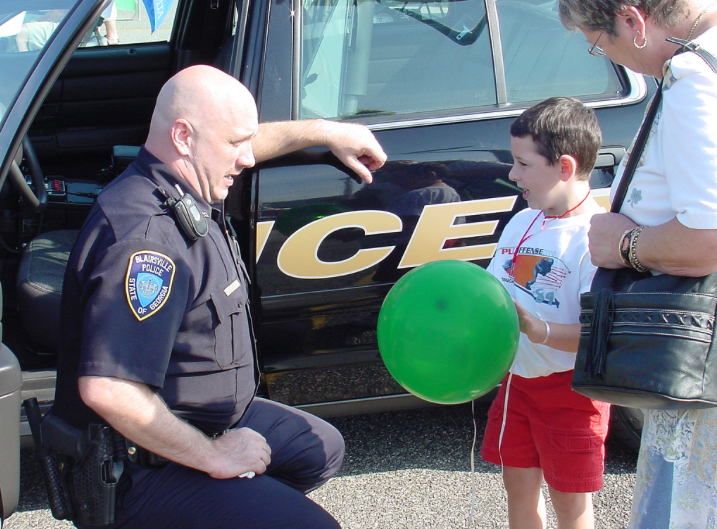Reaction Time: Dirty Drug Enforcement

Jesse Snodgrass is one of those students. In 2012, he was both a transfer student and a disabled student struggling with autism, attending Chaparral High School in Riverside County, California. As many people know, children with autism may have difficulties interacting socially with others and making friends, which could make high school even harder than it already is for those students. It is hardly a surprise, then, that when Jesse was approached by “Dan,” a supposedly fellow transfer student who wanted to be friends, he was excited and eager to please. “Dan,” according to the Los Angeles Times, began immediately pressuring Jesse (whose autism is apparently rather noticeable through his speech and demeanor) to steal pills from his parents or purchase marijuana to give to him. Eventually, Jesse complied, trading $20 for less than a gram of marijuana that he then gave to “Dan.” Soon thereafter, Jesse found himself arrested and thrown in juvenile detention. All along, “Dan” had been an undercover narcotics officer, attending high school classes to attempt to catch student drug dealers.
Jesse eventually turned out okay: a judge erased the drug charge from his record, and ruled that the school could not expel him because his actions had clearly been influenced by his disability. Other students in Riverside County, though, may not have been so lucky. Apparently, in Riverside County, allowing undercover cops to perform sting operations to snag potential drug dealers is a fairly common occurrence. In the past four years, over 100 students have been arrested in drug stings, and apparently many of those students were special needs students like Jesse.
To me, there are a few issues here. First, is the general idea of a county focusing its police forces on small crimes like the purchase or possession of $20 worth of marijuana. I mean, do they not have anything better to do? I understand that certain places have more crime than others, but if a police department really has nothing else to do in their entire county than focus on drugs, how about working with school districts to provide honest drug education for students instead of employing officers specifically to create crime that would not otherwise exist? Or, even better, how about working preventatively to educate students about mental health, considering all of the violent shootings and stabbings that have plagued our schools for the past decade? Drug use and abuse is not a victimless crime, and I do believe that there is a priority for schools and police to work together and keep schools as drug-free as possible. But, it is doubtful that one person buying $20 worth of marijuana will create a downward drug-filled spiral for an entire district. There are plenty of people who smoke a little (or a lot of) weed and still turn out quite successful, but this isn't really even about the dangers or merits of marijuana. Rather, it is about the misuse of our police departments and the exploitation of our children, particularly special-needs children.
There is a reason that the Los Angeles Unified School District (LAUSD) does not employ police officers as undercover narcotics agents or allow sting operations in their schools: because it doesn’t work. In fact, in 2004 (remember that’s ten years ago), LAUSD concluded that not only did undercover sting operations have the potential to harm their students, but that they also were completely ineffective in their efforts to combat drug availability on high school campuses. Riverside County, however, insists on continuing the practice - and for what reason? Is Riverside County so desperate to increase their arrest statistics that they will pay their officers to create crime where it otherwise would not exist?
A police officer of department should never be so desperate to meet a quota that they forget the moral implications of being a police officer. As kids grow up, they are told that police forces are trained to protect them: police are the people that you should go to if you are lost on a street corner or if someone steals from you, and you should never be afraid of policemen or policewomen. In short, it is the job of the police to eradicate crime. But, if the police of Riverside County are at once creating crime and targeting and framing special needs children - those who are in need of protection even more so than your average citizen - then they are not only failing to do their job, they are actively doing the exact opposite of what they are supposed to be doing.
I cannot imagine how difficult it is to be a parent of a special-needs child; the last thing that these parents need is to be wary that every hard-earned friend their son or daughter makes is actually an undercover police officer pressing their disabled child into crime. I have nothing but respect for most police officers, and I do believe that the vast majority of them act in a way that is morally becoming of someone in their position. But, putting officers in the position where they are expected or forced to play “21 Jump Street” is not only harmful to the public’s perception of police officers as professionals, but also to the special-needs or otherwise disabled children that are being targeted over and over again. Riverside County needs to shift their focus away from numbers and back to people as soon as possible, before more children are harmed in the same - or worse - ways than Jesse Snodgrass was.
Get more "Reaction Time" - common sense reactions to everyday craziness - here.
Reach Contirbutor Ariana Aboulafia here.



